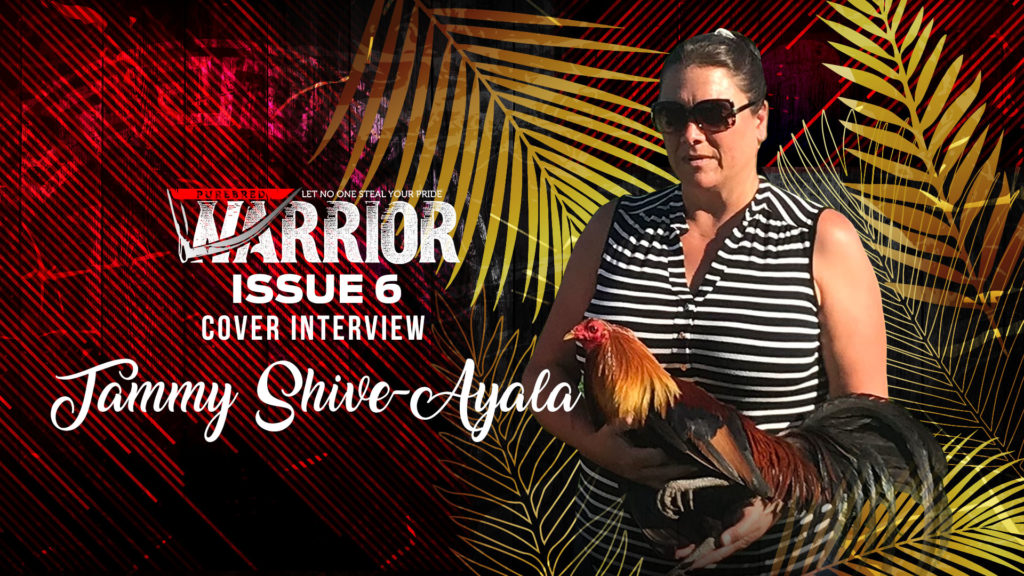I’m strict, firm, but also understands that everyone, including myself, makes mistakes, and we must learn from the mistakes and continue to improve.
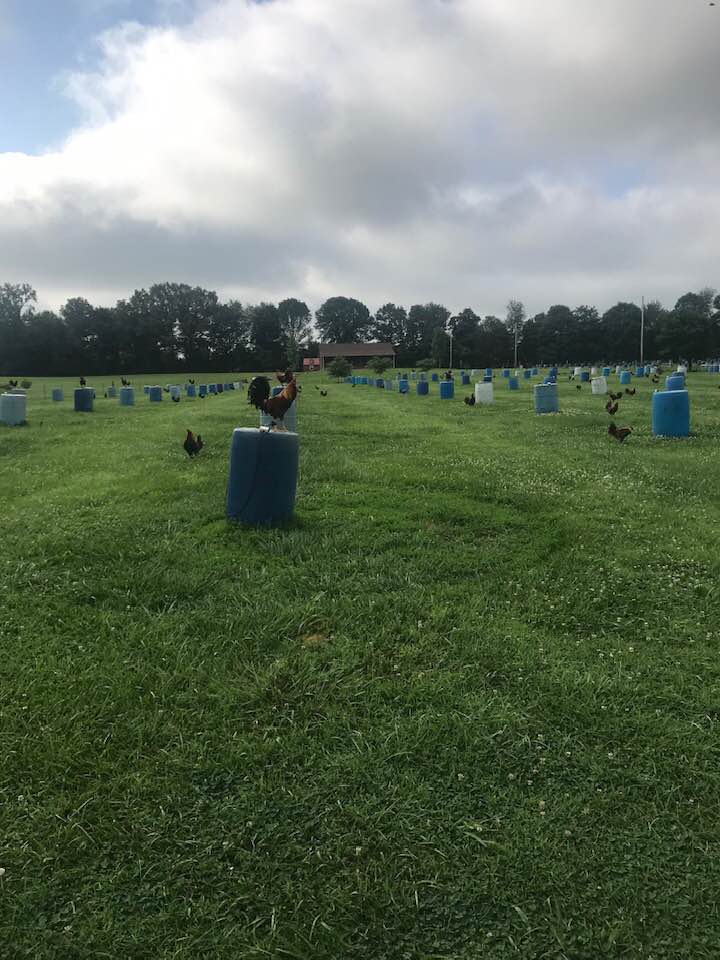
Neroe Lee: Who is Tammy Shives as a gamefowl breeder and as a mother?
Tammy Shive-Ayala: I was a Gamefowl breeder long before I was a mother. Gamefowl was my number one love of life until I became a mom then, of course, being a mom took first place and always will. My son is so special to me, and beyond life, I do love him.
I look at raising Gamefowl and being the best mom, and I can be somewhat in the same manner. I’m strict, firm, but also understands that everyone, including myself, makes mistakes, and we must learn from the mistakes and continue to improve.
Neroe Lee: Can you tell us a brief story of how you started breeding gamefowls and what brought you to this path?
Tammy Shive-Ayala: My Cousin got me interested in Gamefowl around 1985. He was at the time dating a girl, and her brother raised Gamefowl. I fell in love with the bird’s beauty and the fact that they would fight to the death. I ask my cousin to bring me a Cock and some hens to turn out on my father’s farm, so he brought me a Massey Yellow leg hatch Cock and four dark hens. I think two were brown-red, and two were Joe sparks Sid Taylor’s. I raised nine stags from those four hens the Massey YLH Cock. My cousin was at the farm and saw the stags and told me. They were having a get together on July 3-4 and that I should bring a couple of the stags to try that they were going to have a small fight between friends. I didn’t know anything about the fighting aspect of it, but I took the biggest stags with me to the outing. Everyone there had 2-year-olds except me mine were stags. I won with both of them one won 2 fights they couldn’t believe I beat there Cocks. That’s where I met Mike Shive, my cousin’s girlfriends brother the Massey yellow leg hatch and dark hens I had turned out to be his. He had given them to my cousin to turn out on range somewhere. I met him at that get-together, and the rest is history!!
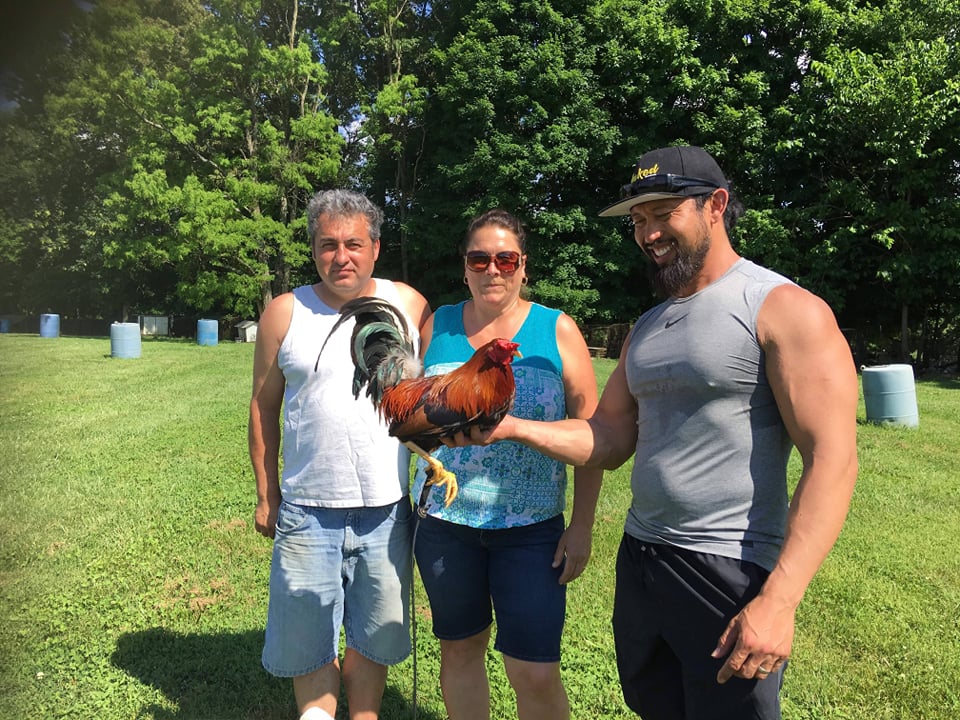
Neroe Lee: How would you describe the status quo of American gamefowl industry?
Tammy Shive-Ayala: In my personal opinion, we’ve lost the Gamefowl industry when we lost the last legal state for Cockfighting. Sometimes we take for granted our freedoms and become complacent with the status of bills and the implications of the growing laws.
Neroe Lee: What could be the most memorable moment of your life as a breeder?
Tammy Shive-Ayala: I’ve had a lot of awesome memories from the sport, but I guess being invited to the Philippines by Thunderbird in 2014 was one of the most memorable. I went to the Philippines in January 2015.
Neroe Lee: The advent of Stag Competition in the Philippines demands early maturing birds, in your humble opinion as a breeder what bloodlines suit best?
Tammy Shive-Ayala: My favourite cross is 1/2 Radio 1/4 Sweater 1/4 Kelso for the Philippines
Neroe Lee: The advent of Stag Competition in the Philippines demands early maturing birds, in your humble opinion as a breeder what bloodlines suit best?
Tammy Shive-Ayala: My favourite cross is 1/2 Radio 1/4 Sweater 1/4 Kelso for the Philippines
Neroe Lee: How were you able to build such a following around the globe, most notably in the Philippines?
Tammy Shive-Ayala: Well, I think having Birds that produce for the people had a significant influence on my popularity in the Philippines.
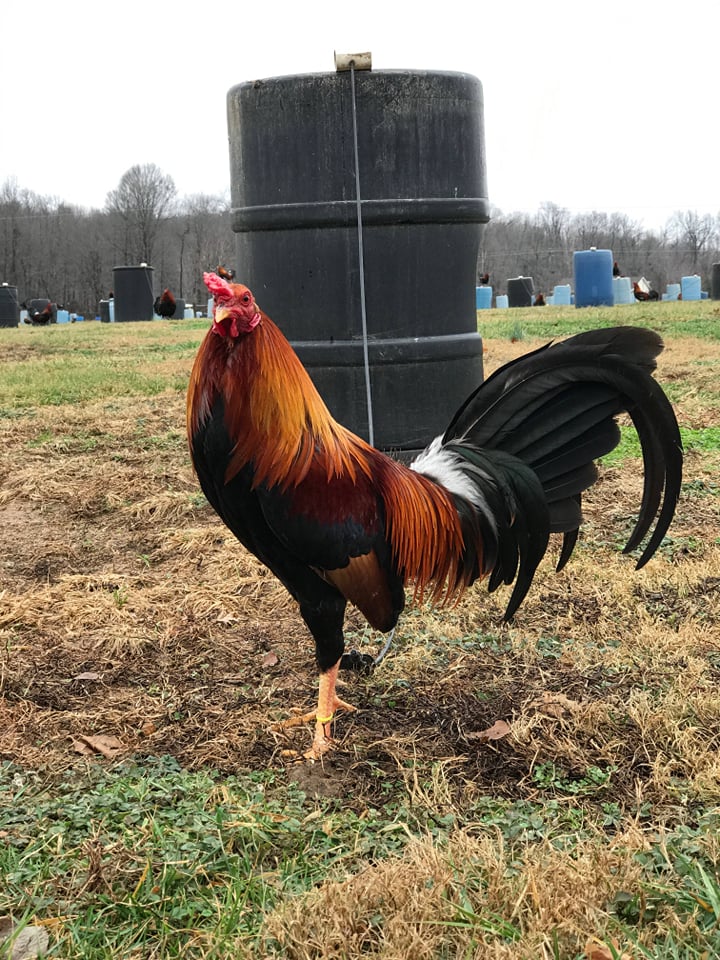
Mike passed away in 2004 of pancreatic Cancer it was devastating for me. I had to decide to live or die with him. He was an active person, and we had an amazingly short 15 years together.
Neroe Lee: When you were starting, was it difficult? How was it when you were beginning breeding gamefowls as Tammy Shives without the lustre you got today?
Tammy Shive-Ayala: Yes, it was hard the first few years raising one I didn’t know anything about it. I married Mike in 1990, and the knowledge came with him, but we were poor and had to work very hard to feed the birds and ourselves. We milked cows at a dairy farm and raised tobacco for a local farmer. The birds were our love; however, we had to win to feed them and ourselves. Mike passed away in 2004 of pancreatic Cancer it was devastating for me. I had to decide to live or die with him. He was an active person, and we had an amazingly short 15 years together. We lived more in those 15 years than most people do in a lifetime. He taught me a lot about the chickens he loved them and wanted me to continue. We talked about it. I think that fact and chickens is what saved me. I immersed myself in the chickens once Mike passed away. I spent a lot of time with them just thinking. Life changes sometimes it’s out of our control for reasons we don’t understand. I would not have had my son if Mike hadn’t passed away; that’s the way I look at it makes it easier to accept.
Neroe Lee: What are bloodlines you possess that are highly competitive in long knife style of fighting?
Tammy Shive-Ayala: The bloodlines we have are Sweater, Radio, Yellow-legged hatch, Kelso, Bates hatch, Leiper Hatch and Manzel Grey.
Neroe Lee: Can you give the history from 4 of your best bloodline.
Tammy Shive-Ayala: The Bates hatch is my oldest family I’ve had the sense 1990. Mike, my late husband, had them when we met around 1988. They were initially from Richard Bates they come green and blue legged 95% pea combs, and I have gotten a few straight combs. They come from light red to medium red the pullets are pinstriped or straw neck I call them. Medium breakers with power plenty of brains and bottom they lack speed as with most hatches, so I usually cross them on speed fowl.
My Sweater, Yellow Leg hatch and Radio I acquired from Darrell Wilson in 1994 /95 they have all been excellent families for me so far. Darrell is a good friend of mine he raised for Mr Johnny Jumper from 1977 -1988 / 89.
I acquired Kelso in 2006 from Mr George Neil and told me they had come directly from Mr Johnny Jumper and were the late Cecil Davis families. They have been excellent families also. There white and yellow-legged pea and straight combs.
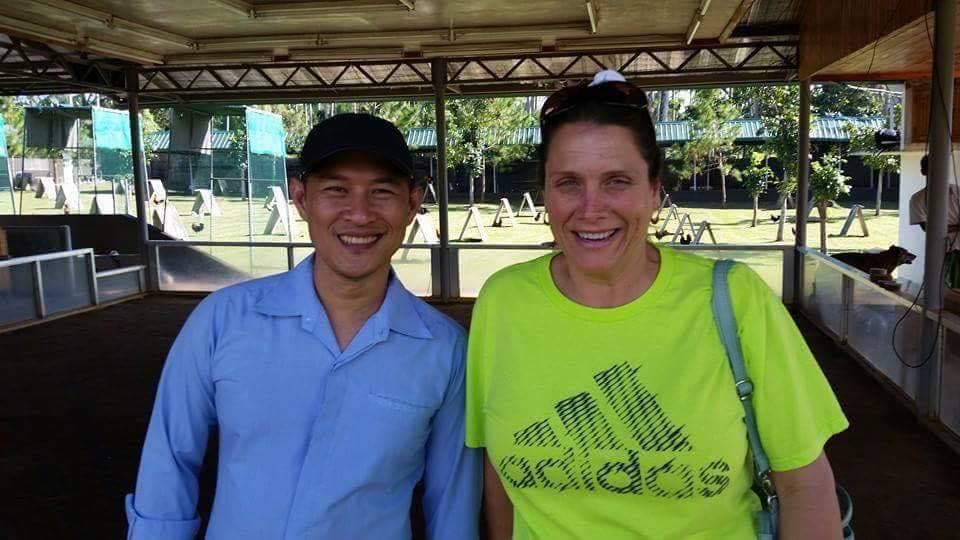
Neroe Lee: During the legal days of US cockfighting, were you fighting your birds?
Tammy Shive-Ayala: Yes, we have shown all over the United States, Mexico and the Philippines with relative success.
Neroe Lee: As a breeder, how many do you raise every year? What is your culling rate per batches?
Tammy Shive-Ayala: Now we raise somewhere around 1000 stags per season 500 pure, 500 crosses that’s penned numbers, so we usually hatch around 2500. We don’t have a specific cull rate we start culling at the egg and cull till there in hardening pens. I think culling is a must-do maybe one of if not the most important aspects of being a successful breeder.
Neroe Lee: Many starter breeders around the globe decently producing winning birds. What do you think is your edge that keeps your customer coming back? What edge American breeders as a whole have that separates them from the rest?
Tammy Shive-Ayala: Success brings back customers. That’s pure and simple. If people do well with your product, they’re going to tell other people too. Well, some word has a way of getting customers.
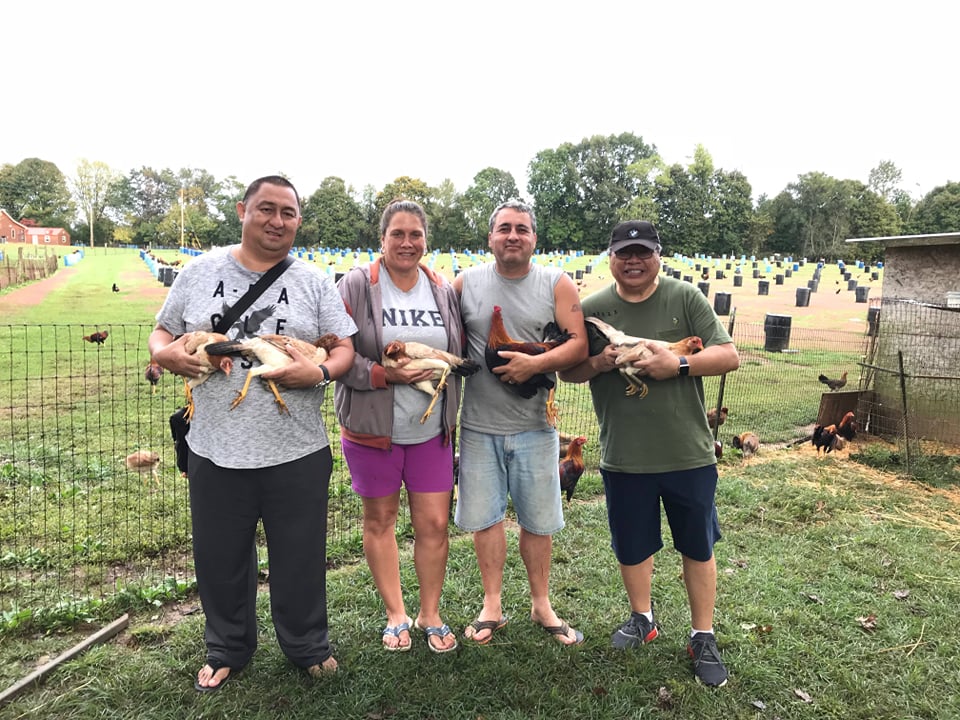
Neroe Lee: How do you manage your farm and Gamefowl effectively?
Tammy Shive-Ayala: Managing any business is hard. I think you have to be strict, especially when it’s a breeding program. I think I’m too picky on feed, meds, culling etc. However, it’s working so as I’ve been told others many times if it’s working don’t fix it! My husband, son and mom, are a huge help also it takes teamwork to run any successful business.
Neroe Lee: Today, your birds are well-known around the globe; how do you make sure that they will perform as advertising? What do you do to maintain or exceed your status?
Tammy Shive-Ayala: We keep a strict selection protocol on all breeding materials we select for our customers. I make all the selection of breeding materials for my customers. I choose the same quality breeding materials that I require for my breeding pens here at the farm for my customers. That way, the performance and quality are in line with our programs here at the farm. We continue to improve quality breeding materials every year through the selection, and so we continue to pass that along to our customers.
I make all the selection of breeding materials for my customers. I choose the same quality breeding materials that I require for my breeding pens here at the farm for my customers.
Neroe Lee: From your last visit to the Philippines, what can you say about the state of Cockfighting there?
Tammy Shive-Ayala: My trip to the Philippines was an enjoyable experience. The people were so lovely and welcoming. I made a lot of friends and can’t thank them all enough for the beautiful experience l look forward to returning with my family. Cockfighting in the Philippines was an excellent experience. The quality of the birds shown was overall impressive.
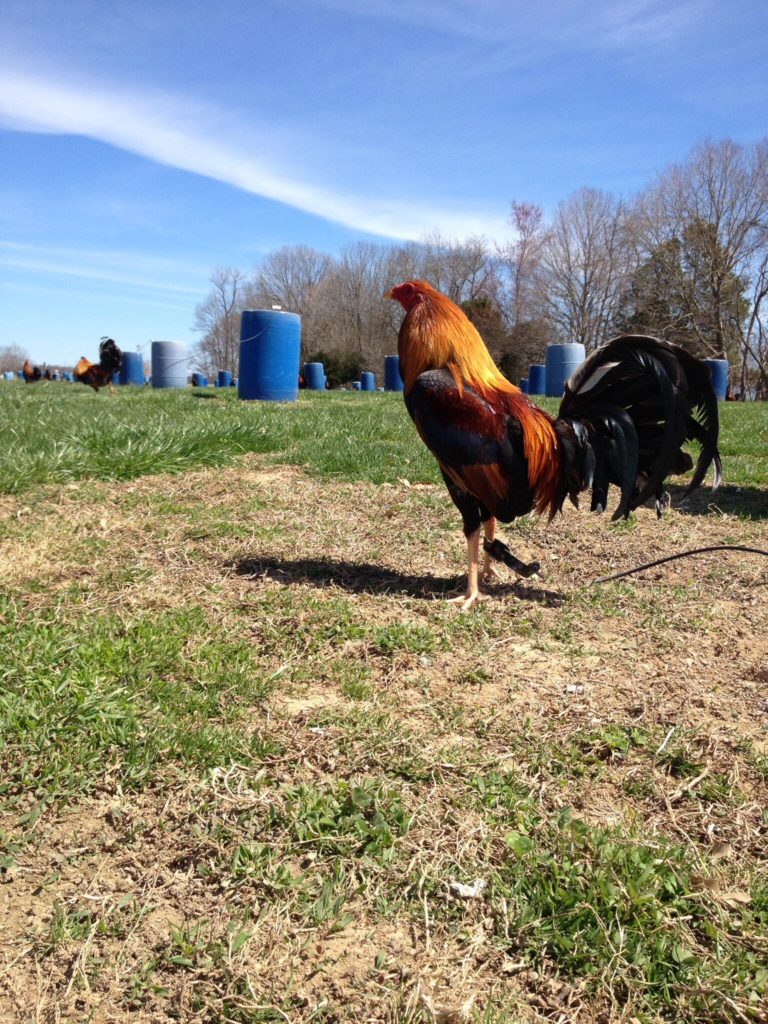
Neroe Lee: For people who wish to import materials can you share to us how can they maximize their acquisition and how can they maintain the bloodline?
Tammy Shive-Ayala: We have been exporting birds to the Philippines for our customers since 2009 with excellent success. It’s a natural process we can handle everything from start to finish. We guarantee birds to arrive alive and healthy to our customers in the Philippines to ease their worries a little. Money-back guarantee!!
Neroe Lee: What are the points you can share in selecting a mainstay Broodstag, broodcock and hens.
Tammy Shive-Ayala: I select my breeding materials in several different ways. I look for health, proper conformation, balance, bone structure. I also look for temperament and mindset of a bird, his willingness to adapt to adverse conditions. The same standard applies to the pullets or hens.
Neroe Lee: To our reading patron who wishes to start breeding, what can you advise them?
Tammy Shive-Ayala: My advice is, no matter where you got your breeding materials, you should start small with 2-3 families only. At first, keep them healthy, vaccinated and well taken care of and if their quality breeding materials they will produce for you quality offspring.
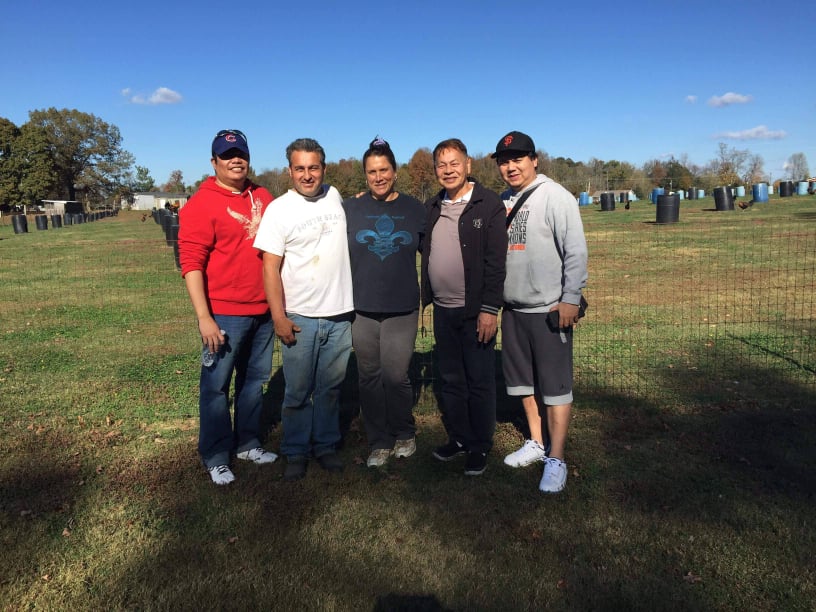
Neroe Lee: In your standard, how do you categorize a bird as pure?
Tammy Shive-Ayala: I think for a family to be considered pure, it must be line-bred and in-bred on both the Cock and hen sides. It takes years and years of breeding back into the same family line to achieve pure lines. Anytime you bring in new blood into a family to freshen then it’s a start over or a new family, in my opinion. I also know from experience some families take inbreeding and line-breeding differently. While it may significantly improve some families, it can also ruin some families.
Neroe Lee: Does this new digital magazine, Purebred Warrior, help our sprawling industry?
Tammy Shive-Ayala: Oh, definitely, I think the more people that you expose to the industry, the more options customers have a better view of the industry.
Neroe Lee: On behalf of our team Purebred Warrior, would you be willing to offer some help to our breeder with a “Big Heart” program? Where we give back to people who are most marginalized and less fortunate. These events are well documented and posted in our magazine.
Tammy Shive-Ayala: I will donate a winner’s choice trio of available breeding materials to the Big Heart program.
100 % of the profit will be going to the Big Heart program. The trio will be selected by myself in October, November or December winner’s choice and shipped to the winning bidder. The winning bidder is responsible for shipping fees only.
Disclaimer
Purebred Warrior reserves the right to accept or refuse materials for publication or advertising. Perspectives expressed by the authors and contributors do not necessarily reflect the opinion of Purebred Warrior. No materials may be reposted or reprinted from this website without obtaining prior written consent from the publisher. Facts contained in the articles referred only to circumstances when the sport of cockfighting was still legal in the United States. Articles were written to recognize a past American cultural heritage. No game fowls will be sent to countries where cockfighting is illegal. Please take note that cockfighting is legal in the Philippines. It is your responsibility to assess whether or not cockfighting is permitted in the country where you stay.
 The International Gamefowl Festival (IGF 2024) Unveils a Thriving World of Poultry Excellence
The International Gamefowl Festival (IGF 2024) Unveils a Thriving World of Poultry Excellence  Purebred Warrior Magazine Issue #22
Purebred Warrior Magazine Issue #22  Harmony in Feathers: Unveiling the DNA Blues Saga
Harmony in Feathers: Unveiling the DNA Blues Saga  PUREBRED WARRIOR MAGAZINE ISSUE #23
PUREBRED WARRIOR MAGAZINE ISSUE #23  A Decade of Devotion: IGF 2024 Hobby Expo Unveils a Tapestry of Passion at SMX Convention Center
A Decade of Devotion: IGF 2024 Hobby Expo Unveils a Tapestry of Passion at SMX Convention Center  A Guide to Preventing and Treating Disease
A Guide to Preventing and Treating Disease  A Glimpse into Ricky Cruzado’s Sabrina Game Farm
A Glimpse into Ricky Cruzado’s Sabrina Game Farm  How to Keep Your Gamefowl Healthy
How to Keep Your Gamefowl Healthy  Uniprom Inc. Stages 2nd World Slasher Cup in Smart Araneta Coliseum
Uniprom Inc. Stages 2nd World Slasher Cup in Smart Araneta Coliseum 


